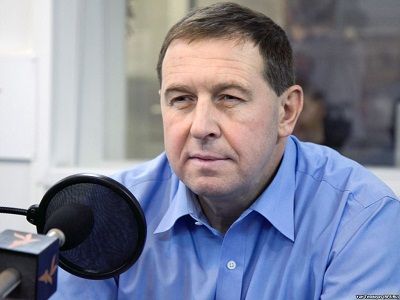That act of political and intellectual archaeology is useful and instructive for those who must confront Putin’s new way of war, but perhaps even more important now is the argument the Russian analyst and commentator offers concerning when this war will end, especially since some people think it will end with a ceasefire to be arranged between Moscow and the West. Illarionov argues that “the goal of Putin’s war against Ukraine is an attempt at the inclusion of it, Belarus, and also Russian-speaking enclaves in other countries in some kind of geopolitical union called ‘the Russian world,’ with the liquidation or at least the limitation of their sovereignty” as independent countries. Consequently, he continues, “this war, begun on July 27, 2013, will end only when V. Putin and also any other Russian state leaders both in words and indeed turn away without any qualification from the policy of denying the statehood, sovereignty and independence of Ukraine and other states with Russian or Russian speaking population.” More, it will only end when Moscow “recognizes the unqualified right of the citizens of Ukraine and only the citizens of Ukraine to define their presence and future foreign political and foreign economic orientation.” And their seriousness in that regard, Illarionov says, will be reflected by their completely stopping all forms of “aggressive actions against Ukraine, including an end to linguistic anti-Ukrainian aggression.” Until that happens, until Moscow stops committing linguistic as well as military aggression, “the war against Ukraine will continue” and spread to other countries. A first step in this direction, he suggests, is one that all Russians can make. They must stop using the locution "”на Украине" (“on the borderland”) because that is a core part of Moscow’s anti-Ukrainian linguistic aggression and represents “a form of support of the war being conducted by Putin, Lavrov and [Patriarch] Kirill.” “The ordinary Russian citizen does not have so many real chances to oppose this shameful war against Ukraine and Ukrainians,” Illarionov says. “But each has one weighty resource – and that is not to take part in linguistic anti-Ukrainian aggression” and to follow not Putin and company but rather the great writers Pushkin, Gogol, Tolstoy and Chekhov and use instead the grammatically correct form "в Украине" (“in Ukraine’).“The goal of Putin’s war against Ukraine is an attempt at the inclusion of it, Belarus, and also Russian-speaking enclaves in other countries in some kind of geopolitical union called ‘the Russian world,’ with the liquidation or at least the limitation of their sovereignty” as independent countries.
For an even broader discussion of the ways in which the Russian language has become another part of the collateral damage from Putin’s war against Ukraine, see Vadim Shtepa’s essay (in Russian) posted online today as well.

